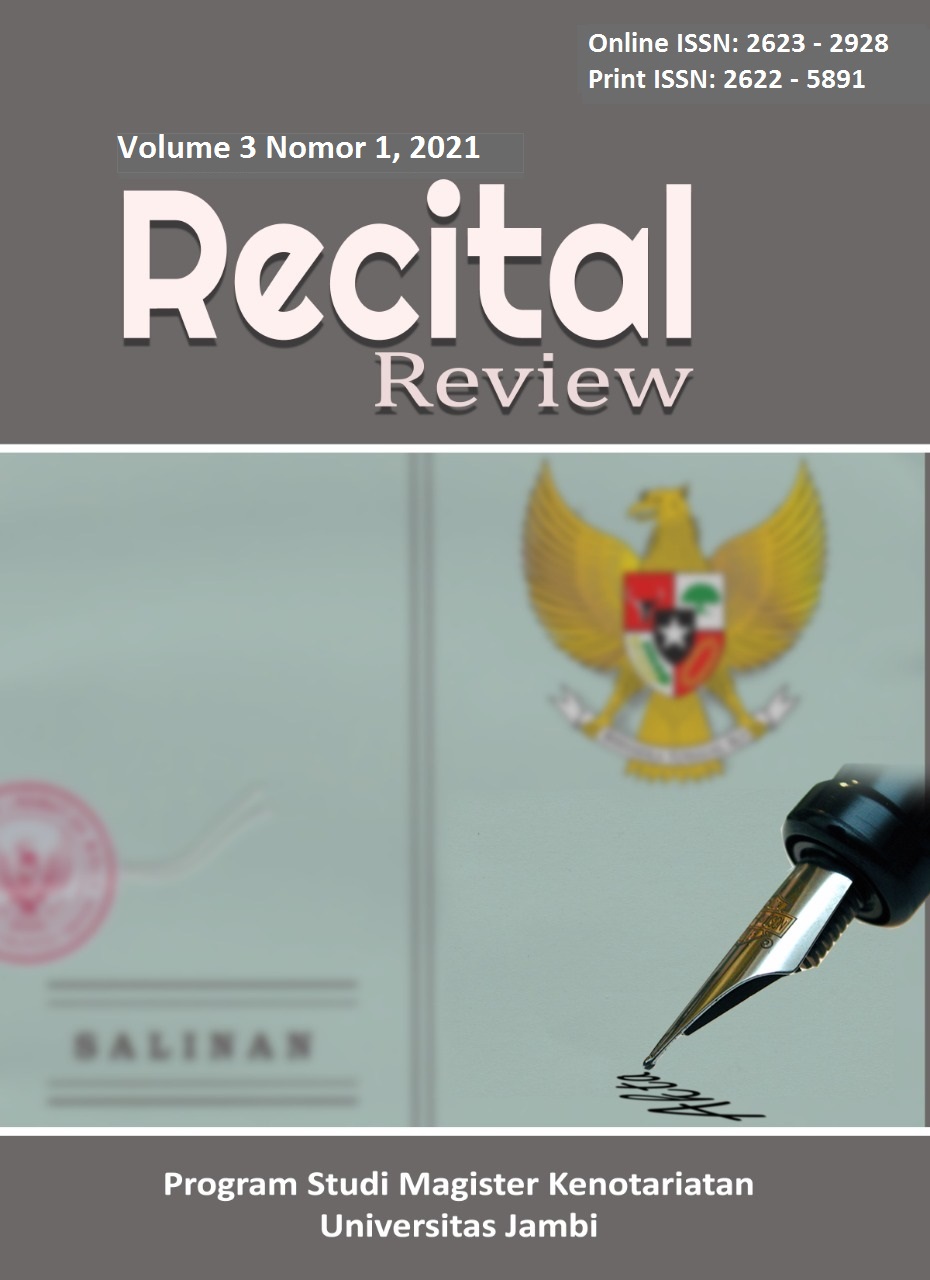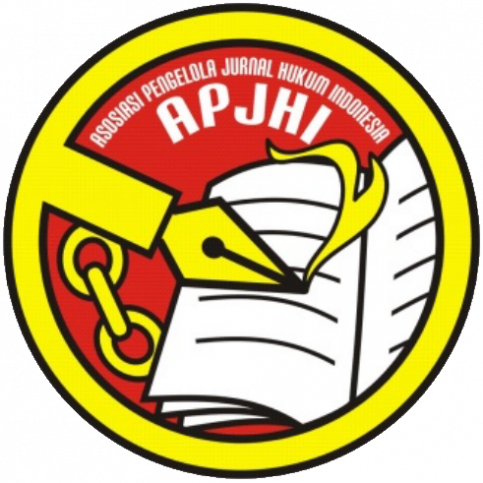PERALIHAN HAK ATAS TANAH YANG TIDAK DIKETAHUI KEBERADAAN PEMILIKNYA
DOI:
https://doi.org/10.22437/rr.v3i1.10654Abstract
ABSTRACT
Land is one of sources of livelihood and subsistence for individuals and society so that it becomes basic needs of human beings. The urgency of land for humans’ life is appreciated by Government of the Republic of Indonesia through land national policy by the issuance of Law Number 5/1960 on the Basic Agrarian Regulations. BPN (the National Land Office) is specifically obliged to provide legal certainty to land management for citizens with various types of ownership rights to be properly used. In order to avoid any kinds of disputes, the society has to firstly understand whether the land has already had an owner, is abandoned or is still owned by the State. The research problems are how about the criteria of land that can be owned by society, how about the transfer of land title whose owner is unknown, and what role is played by the Government concerning land title transfer whose owner is unknown.This is a normative juridical research with normative juridical approach. Circumstances are not present and the legal consequences according to Indonesian Civil Law, Unknown condition of a person can lead to various problems including which will affect the legal status of that person, his wealth and marriage. This is the case with land owned by someone who is declared missing or absent (Afwezigheid) require ruling on death notification issued by a Judge; thus, all heirs who, pursuant to the laws, are rightful to transfer all authorities over their properties, are suggested to organize inherited wealth and property.
Keywords: Title Transfer, Land, Owners’ Existence.
Downloads
References
DAFTAR PUSTAKA.
Buku-Buku
Abdullah bin Qudá¾±mah Al-Muqaddisi, al-Ká¾±fi fi Fiqh Imam Ahmad bin Hanbal, Cetakan Pertama, Jilid 2,Dá¾±rl al-Kutub al-Alamiyah, Beirut, 1994.
Ali, Zainuddin, Metode Penelitian Hukum,Sinar Grafika, Jakarta, 2009.
Al-Rasyid,Harun, Sekilas Tentang Jual Beli Tanah, Cetakan I Ghalia Indonesia, Jakarta, 1987.
Lubis, Mhd. Yamin, Hukum Pendaftaran Tanah, CV. Mandar Maju, Bandung, 2010.
Muhammad bin Idis As-Syᾱfi‟ie, al-Uum, Cetakan Pertama, Jilid 5. T.tp: Dᾱrl al-wafak, 2001.
PeraturanPerundang-Undangan
Undang-Undang Dasar Negara Republik Indonesia
Kitab Undang-Undang Hukum Perdata.
Undang-Undang Pokok Agraria.
Peraturan Pemerintah Nomor 11 Tahun 2010 tentang Penertiban dan Pendayagunaan Tanah Terlantar.
Peraturan Menteri Agraria/Kepala Badan Pertanahan Nasional Nomor 3 Tahun 1997 tentang Ketentuan Pelaksanaan Peraturan Pemerintah Nomor 24 Tahun 1997 tentang Pendaftaran Tanah.
PetunjukTeknisDirektoratSurvei dan Potensi Daerah, DeputiSurvei, Pengukuran dan Pemetaan Badan Pertanahan Nasional Republik Indonesia.
PeraturanKepala Badan Pertanahan Nasional Republik Indonesia Nomor 4 Tahun 2010 tentang Tata Cara Penertiban Tanah Terlantar.
Jurnal
Pan Mohamad Faiz dan Rendy Octavianus Dumais, Pengaturan Hukum Terhadap Keberadan Tanah Terlantar di Indonesia, 2009.
Supriyanto, Kriteria Tanah TerlantarDalamPeraturanPerundangan Indonesia, Vol. 10 No. 1, FakultasHukumUniversitasJenderalSoedirmanPurwokerto, Jawa Tengah, Januari 2010.
Luh Putu Suryani, Tesis :“Penertiban dan Pendayagunaan Tanah TerlantarDalamRangkaPenatagunaan Tanah Di Kota Denpasar†Denpasar: Universitas Udayana,2011

Downloads
Published
How to Cite
Issue
Section
License
Copyright (c) 2021 DIANA LUBIS

This work is licensed under a Creative Commons Attribution 4.0 International License.
The Authors(s) retain copyrights of the Article published on Recital Review. However, before publishing, it is required to obtain written confirmation from Author(s) in order to ensure the originality (Author Statement of Originality). The statement is to be signed by at least one of the authors who have obtained the assent of the co-author(s) where applicable. This work licensed under a Creative Commons Attribution 4.0 International License). All writings published in this journal are personal views of the authors and do not represent the views of this journal and the author's affiliated institutions.Â





